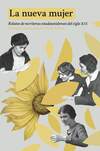Loe raamatut: «A Country Doctor and Selected Stories and Sketches», lehekülg 26
III
It is well that the days are long in the last of May, but John Stover had to hurry more than usual with his evening work, and then, having the longest distance to walk, he was much the latest comer to the Plains store, where his two triumphant friends were waiting for him impatiently on the bench. They also had made excuse of going to the post-office and doing an unnecessary errand for their wives, and were talking together so busily that they had gathered a group about them before the store. When they saw Stover coming, they rose hastily and crossed the road to meet him, as if they were a committee in special session. They leaned against the post-and-board fence, after they had shaken hands with each other solemnly.
"Well, we've had a great day, ain't we, John?" asked Henry Merrill. "You did lead off splendid. We've done a grand thing, now, I tell you. All the folks say we've got to keep it up every year. Everybody had to have a talk about it as I went home. They say they had no idea we should make such a show. Lord! I wish we'd begun while there was more of us!"
"That han'some flag was the great feature," said Asa Brown generously. "I want to pay my part for hirin' it. An' then folks was glad to see poor old Martin made o' some consequence."
"There was half a dozen said to me that another year they was goin' to have flags out, and trim up their places somehow or 'nother. Folks has feelin' enough, but you've got to rouse it," said Merrill.
"I have thought o' joinin' the Grand Army over to Alton time an' again, but it's a good ways to go, an' then the expense has been o' some consideration," Asa continued. "I don't know but two or three over there. You know, most o' the Alton men nat'rally went out in the rigiments t' other side o' the State line, an' they was in other battles, an' never camped nowheres nigh us. Seems to me we ought to have home feelin' enough to do what we can right here."
"The minister says to me this afternoon that he was goin' to arrange an' have some talks in the meetin'-house next winter, an' have some of us tell where we was in the South; an' one night 'twill be about camp life, an' one about the long marches, an' then about the battles,—that would take some time,—an' tell all we could about the boys that was killed, an' their record, so they wouldn't be forgot. He said some of the folks must have the letters we wrote home from the front, an' we could make out quite a history of us. I call Elder Dallas a very smart man; he'd planned it all out a'ready, for the benefit o' the young folks, he said," announced Henry Merrill, in a tone of approval.
"I s'pose there ain't none of us but could add a little somethin'," answered John Stover modestly. "'Twould re'lly learn the young folks a good deal. I should be scared numb to try an' speak from the pulpit. That ain't what the Elder means, is it? Now I was one that had a good chance to see somethin' o' Washin'ton. I shook hands with President Lincoln, an' I always think I'm worth lookin' at for that, if I ain't for nothin' else. 'Twas that time I was just out o' hospit'l, an' able to crawl about some. I've often told you how 'twas I met him, an' he stopped an' shook hands an' asked where I'd been at the front an' how I was gettin' along with my hurts. Well, we'll see how 'tis when winter comes. I never thought I had no gift for public speakin', 'less 'twas for drivin' cattle or pollin' the house town-meetin' days. Here! I've got somethin' in mind. You needn't speak about it if I tell it to ye," he added suddenly. "You know all them han'some flowers that was laid on to Eb Munson's grave an' Tighe's? I mistrusted you thought the same thing I did by the way you looked. They come from Marthy Down's front yard. My woman told me when we got home that she knew 'em in a minute; there wa'n't nobody in town had that kind o' red flowers but her. She must ha' kind o' harked back to the days when she was Marthy Peck. She must have come over with 'em after dark, or else dreadful early in the mornin'."
Henry Merrill cleared his throat. "There ain't nothin' half-way 'bout Mis' Down," he said. "I wouldn't ha' spoken 'bout this 'less you had led right on to it; but I overtook her when I was gittin' towards home this afternoon, an' I see by her looks she was worked up a good deal; but we talked about how well things had gone off, an' she wanted to know what expenses we'd been put to, an' I told her; and she said she'd give five dollars any day I'd stop in for it. An' then she spoke right out. 'I'm alone in the world,' says she, 'and I've got somethin' to do with, an' I'd like to have a plain stone put up to Eb Munson's grave, with the number of his rigiment on it, an' I'll pay the bill. 'Tain't out o' Mr. Down's money,' she says; ''tis mine, an' I want you to see to it.' I said I would, but we'd made a plot to git some o' them soldiers' headstones that's provided by the government. 'Twas a shame it had been overlooked so long. 'No,' says she; 'I'm goin' to pay for Eb's myself.' An' I told her there wouldn't be no objection. Don't ary one o' you speak about it. 'Twouldn't be fair. She was real well-appearin'. I never felt to respect Marthy so before."
"We was kind o' hard on her sometimes, but folks couldn't help it. I've seen her pass Eb right by in the road an' never look at him when he first come home," said John Stover.
"If she hadn't felt bad, she wouldn't have cared one way or t'other," insisted Henry Merrill. "'Tain't for us to judge. Sometimes folks has to get along in years before they see things fair. Come; I must be goin' home. I'm tired as an old dog."
"It seemed kind o' natural to be steppin' out together again. Strange we three got through with so little damage, an' so many dropped round us," said Asa Brown. "I've never been one mite sorry I went out in old A Company. I was thinkin' when I was marchin' to-day, though, that we should all have to take to the wagons before long an' do our marchin' on wheels, so many of us felt kind o' stiff. There's one thing,—folks won't never say again that we can't show no public sperit here in old Barlow."
The Flight of Betsey Lane
I
One windy morning in May, three old women sat together near an open window in the shed chamber of Byfleet Poor-house. The wind was from the northwest, but their window faced the southeast, and they were only visited by an occasional pleasant waft of fresh air. They were close together, knee to knee, picking over a bushel of beans, and commanding a view of the dandelion-starred, green yard below, and of the winding, sandy road that led to the village, two miles away. Some captive bees were scolding among the cobwebs of the rafters overhead, or thumping against the upper panes of glass; two calves were bawling from the barnyard, where some of the men were at work loading a dump-cart and shouting as if every one were deaf. There was a cheerful feeling of activity, and even an air of comfort, about the Byfleet Poor-house. Almost every one was possessed of a most interesting past, though there was less to be said about the future. The inmates were by no means distressed or unhappy; many of them retired to this shelter only for the winter season, and would go out presently, some to begin such work as they could still do, others to live in their own small houses; old age had impoverished most of them by limiting their power of endurance; but far from lamenting the fact that they were town charges, they rather liked the change and excitement of a winter residence on the poor-farm. There was a sharp-faced, hard-worked young widow with seven children, who was an exception to the general level of society, because she deplored the change in her fortunes. The older women regarded her with suspicion, and were apt to talk about her in moments like this, when they happened to sit together at their work.
The three bean-pickers were dressed alike in stout brown ginghams, checked by a white line, and all wore great faded aprons of blue drilling, with sufficient pockets convenient to the right hand. Miss Peggy Bond was a very small, belligerent-looking person, who wore a huge pair of steel-bowed spectacles, holding her sharp chin well up in air, as if to supplement an inadequate nose. She was more than half blind, but the spectacles seemed to face upward instead of square ahead, as if their wearer were always on the sharp lookout for birds. Miss Bond had suffered much personal damage from time to time, because she never took heed where she planted her feet, and so was always tripping and stubbing her bruised way through the world. She had fallen down hatchways and cellarways, and stepped composedly into deep ditches and pasture brooks; but she was proud of stating that she was upsighted, and so was her father before her. At the poor-house, where an unusual malady was considered a distinction, upsightedness was looked upon as a most honorable infirmity. Plain rheumatism, such as afflicted Aunt Lavina Dow, whose twisted hands found even this light work difficult and tiresome,—plain rheumatism was something of every-day occurrence, and nobody cared to hear about it. Poor Peggy was a meek and friendly soul, who never put herself forward; she was just like other folks, as she always loved to say, but Mrs. Lavina Dow was a different sort of person altogether, of great dignity and, occasionally, almost aggressive behavior. The time had been when she could do a good day's work with anybody: but for many years now she had not left the town-farm, being too badly crippled to work; she had no relations or friends to visit, but from an innate love of authority she could not submit to being one of those who are forgotten by the world. Mrs. Dow was the hostess and social lawgiver here, where she remembered every inmate and every item of interest for nearly forty years, besides an immense amount of town history and biography for three or four generations back.
She was the dear friend of the third woman, Betsey Lane; together they led thought and opinion—chiefly opinion—and held sway, not only over Byfleet Poor-farm, but also the selectmen and all others in authority. Betsey Lane had spent most of her life as aid-in-general to the respected household of old General Thornton. She had been much trusted and valued, and, at the breaking up of that once large and flourishing family, she had been left in good circumstances, what with legacies and her own comfortable savings; but by sad misfortune and lavish generosity everything had been scattered, and after much illness, which ended in a stiffened arm and more uncertainty, the good soul had sensibly decided that it was easier for the whole town to support her than for a part of it. She had always hoped to see something of the world before she died; she came of an adventurous, seafaring stock, but had never made a longer journey than to the towns of Danby and Northville, thirty miles away.
They were all old women; but Betsey Lane, who was sixty-nine, and looked much older, was the youngest. Peggy Bond was far on in the seventies, and Mrs. Dow was at least ten years older. She made a great secret of her years; and as she sometimes spoke of events prior to the Revolution with the assertion of having been an eye-witness, she naturally wore an air of vast antiquity. Her tales were an inexpressible delight to Betsey Lane, who felt younger by twenty years because her friend and comrade was so unconscious of chronological limitations.
The bushel basket of cranberry beans was within easy reach, and each of the pickers had filled her lap from it again and again. The shed chamber was not an unpleasant place in which to sit at work, with its traces of seed corn hanging from the brown cross-beams, its spare churns, and dusty loom, and rickety wool-wheels, and a few bits of old furniture. In one far corner was a wide board of dismal use and suggestion, and close beside it an old cradle. There was a battered chest of drawers where the keeper of the poor-house kept his garden-seeds, with the withered remains of three seed cucumbers ornamenting the top. Nothing beautiful could be discovered, nothing interesting, but there was something usable and homely about the place. It was the favorite and untroubled bower of the bean-pickers, to which they might retreat unmolested from the public apartments of this rustic institution.
Betsey Lane blew away the chaff from her handful of beans. The spring breeze blew the chaff back again, and sifted it over her face and shoulders. She rubbed it out of her eyes impatiently, and happened to notice old Peggy holding her own handful high, as if it were an oblation, and turning her queer, up-tilted head this way and that, to look at the beans sharply, as if she were first cousin to a hen.
"There, Miss Bond, 'tis kind of botherin' work for you, ain't it?" Betsey inquired compassionately.
"I feel to enjoy it, anything that I can do my own way so," responded Peggy. "I like to do my part. Ain't that old Mis' Fales comin' up the road? It sounds like her step."
The others looked, but they were not far-sighted, and for a moment Peggy had the advantage. Mrs. Fales was not a favorite.
"I hope she ain't comin' here to put up this spring. I guess she won't now, it's gettin' so late," said Betsey Lane. "She likes to go rovin' soon as the roads is settled."
"'Tis Mis' Fales!" said Peggy Bond, listening with solemn anxiety. "There, do let's pray her by!"
"I guess she's headin' for her cousin's folks up Beech Hill way," said Betsey presently. "If she'd left her daughter's this mornin', she'd have got just about as far as this. I kind o' wish she had stepped in just to pass the time o' day, long's she wa'n't going to make no stop."
There was a silence as to further speech in the shed chamber; and even the calves were quiet in the barnyard. The men had all gone away to the field where corn-planting was going on. The beans clicked steadily into the wooden measure at the pickers' feet. Betsey Lane began to sing a hymn, and the others joined in as best they might, like autumnal crickets; their voices were sharp and cracked, with now and then a few low notes of plaintive tone. Betsey herself could sing pretty well, but the others could only make a kind of accompaniment. Their voices ceased altogether at the higher notes.
"Oh my! I wish I had the means to go to the Centennial," mourned Betsey Lane, stopping so suddenly that the others had to go on croaking and shrilling without her for a moment before they could stop. "It seems to me as if I can't die happy 'less I do," she added; "I ain't never seen nothin' of the world, an' here I be."
"What if you was as old as I be?" suggested Mrs. Dow pompously. "You've got time enough yet, Betsey; don't you go an' despair. I knowed of a woman that went clean round the world four times when she was past eighty, an' enjoyed herself real well. Her folks followed the sea; she had three sons an' a daughter married,—all shipmasters, and she'd been with her own husband when they was young. She was left a widder early, and fetched up her family herself,—a real stirrin', smart woman. After they'd got married off, an' settled, an' was doing well, she come to be lonesome; and first she tried to stick it out alone, but she wa'n't one that could; an' she got a notion she hadn't nothin' before her but her last sickness, and she wa'n't a person that enjoyed havin' other folks do for her. So one on her boys—I guess 'twas the oldest—said he was going to take her to sea; there was ample room, an' he was sailin' a good time o' year for the Cape o' Good Hope an' way up to some o' them tea-ports in the Chiny Seas. She was all high to go, but it made a sight o' talk at her age; an' the minister made it a subject o' prayer the last Sunday, and all the folks took a last leave; but she said to some she'd fetch 'em home something real pritty, and so did. An' then they come home t'other way, round the Horn, an' she done so well, an' was such a sight o' company, the other child'n was jealous, an' she promised she'd go a v'y'ge long o' each on 'em. She was as sprightly a person as ever I see; an' could speak well o' what she'd seen."
"Did she die to sea?" asked Peggy, with interest.
"No, she died to home between v'y'ges, or she'd gone to sea again. I was to her funeral. She liked her son George's ship the best; 'twas the one she was going on to Callao. They said the men aboard all called her 'gran'ma'am,' an' she kep' 'em mended up, an' would go below and tend to 'em if they was sick. She might 'a' been alive an' enjoyin' of herself a good many years but for the kick of a cow; 'twas a new cow out of a drove, a dreadful unruly beast."
Mrs. Dow stopped for breath, and reached down for a new supply of beans; her empty apron was gray with soft chaff. Betsey Lane, still pondering on the Centennial, began to sing another verse of her hymn, and again the old women joined her. At this moment some strangers came driving round into the yard from the front of the house. The turf was soft, and our friends did not hear the horses' steps. Their voices cracked and quavered; it was a funny little concert, and a lady in an open carriage just below listened with sympathy and amusement.
II
"Betsey! Betsey! Miss Lane!" a voice called eagerly at the foot of the stairs that led up from the shed. "Betsey! There's a lady here wants to see you right away."
Betsey was dazed with excitement, like a country child who knows the rare pleasure of being called out of school. "Lor', I ain't fit to go down, be I?" she faltered, looking anxiously at her friends; but Peggy was gazing even nearer to the zenith than usual, in her excited effort to see down into the yard, and Mrs. Dow only nodded somewhat jealously, and said that she guessed 'twas nobody would do her any harm. She rose ponderously, while Betsey hesitated, being, as they would have said, all of a twitter. "It is a lady, certain," Mrs. Dow assured her; "'tain't often there's a lady comes here."
"While there was any of Mis' Gen'ral Thornton's folks left, I wa'n't without visits from the gentry," said Betsey Lane, turning back proudly at the head of the stairs, with a touch of old-world pride and sense of high station. Then she disappeared, and closed the door behind her at the stair-foot with a decision quite unwelcome to the friends above.
"She needn't 'a' been so dreadful 'fraid anybody was goin' to listen. I guess we've got folks to ride an' see us, or had once, if we hain't now," said Miss Peggy Bond, plaintively.
"I expect 't was only the wind shoved it to," said Aunt Lavina. "Betsey is one that gits flustered easier than some. I wish 'twas somebody to take her off an' give her a kind of a good time; she's young to settle down 'long of old folks like us. Betsey's got a notion o' rovin' such as ain't my natur', but I should like to see her satisfied. She'd been a very understandin' person, if she had the advantages that some does."
"'Tis so," said Peggy Bond, tilting her chin high. "I suppose you can't hear nothin' they're saying? I feel my hearin' ain't up to whar it was. I can hear things close to me well as ever; but there, hearin' ain't everything; 'tain't as if we lived where there was more goin' on to hear. Seems to me them folks is stoppin' a good while."
"They surely be," agreed Lavina Dow.
"I expect it's somethin' particular. There ain't none of the Thornton folks left, except one o' the gran'darters, an' I've often heard Betsey remark that she should never see her more, for she lives to London. Strange how folks feels contented in them strayaway places off to the ends of the airth."
The flies and bees were buzzing against the hot windowpanes; the handfuls of beans were clicking into the brown wooden measure. A bird came and perched on the windowsill, and then flitted away toward the blue sky. Below, in the yard, Betsey Lane stood talking with the lady. She had put her blue drilling apron over her head, and her face was shining with delight.
"Lor', dear," she said, for at least the third time, "I remember ye when I first see ye; an awful pritty baby you was, an' they all said you looked just like the old gen'ral. Be you goin' back to foreign parts right away?"
"Yes, I'm going back; you know that all my children are there. I wish I could take you with me for a visit," said the charming young guest. "I'm going to carry over some of the pictures and furniture from the old house; I didn't care half so much for them when I was younger as I do now. Perhaps next summer we shall all come over for a while. I should like to see my girls and boys playing under the pines."
"I wish you re'lly was livin' to the old place," said Betsey Lane. Her imagination was not swift; she needed time to think over all that was being told her, and she could not fancy the two strange houses across the sea. The old Thornton house was to her mind the most delightful and elegant in the world.
"Is there anything I can do for you?" asked Mrs. Strafford kindly,—"anything that I can do for you myself, before I go away? I shall be writing to you, and sending some pictures of the children, and you must let me know how you are getting on."
"Yes, there is one thing, darlin'. If you could stop in the village an' pick me out a pritty, little, small lookin'-glass, that I can keep for my own an' have to remember you by. 'Tain't that I want to set me above the rest o' the folks, but I was always used to havin' my own when I was to your grandma's. There's very nice folks here, some on 'em, and I'm better off than if I was able to keep house; but sence you ask me, that's the only thing I feel cropin' about. What be you goin' right back for? ain't you goin' to see the great fair to Pheladelphy, that everybody talks about?"
"No," said Mrs. Strafford, laughing at this eager and almost convicting question. "No; I'm going back next week. If I were, I believe that I should take you with me. Good-by, dear old Betsey; you make me feel as if I were a little girl again; you look just the same."
For full five minutes the old woman stood out in the sunshine, dazed with delight, and majestic with a sense of her own consequence. She held something tight in her hand, without thinking what it might be; but just as the friendly mistress of the poor-farm came out to hear the news, she tucked the roll of money into the bosom of her brown gingham dress. "'Twas my dear Mis' Katy Strafford," she turned to say proudly. "She come way over from London; she's been sick; they thought the voyage would do her good. She said most the first thing she had on her mind was to come an' find me, and see how I was, an' if I was comfortable; an' now she's goin' right back. She's got two splendid houses; an' said how she wished I was there to look after things,—she remembered I was always her gran'ma's right hand. Oh, it does so carry me back, to see her! Seems if all the rest on 'em must be there together to the old house. There, I must go right up an' tell Mis' Dow an' Peggy."
"Dinner's all ready; I was just goin' to blow the horn for the men-folks," said the keeper's wife. "They'll be right down. I expect you've got along smart with them beans,—all three of you together;" but Betsey's mind roved so high and so far at that moment that no achievements of bean-picking could lure it back.



















